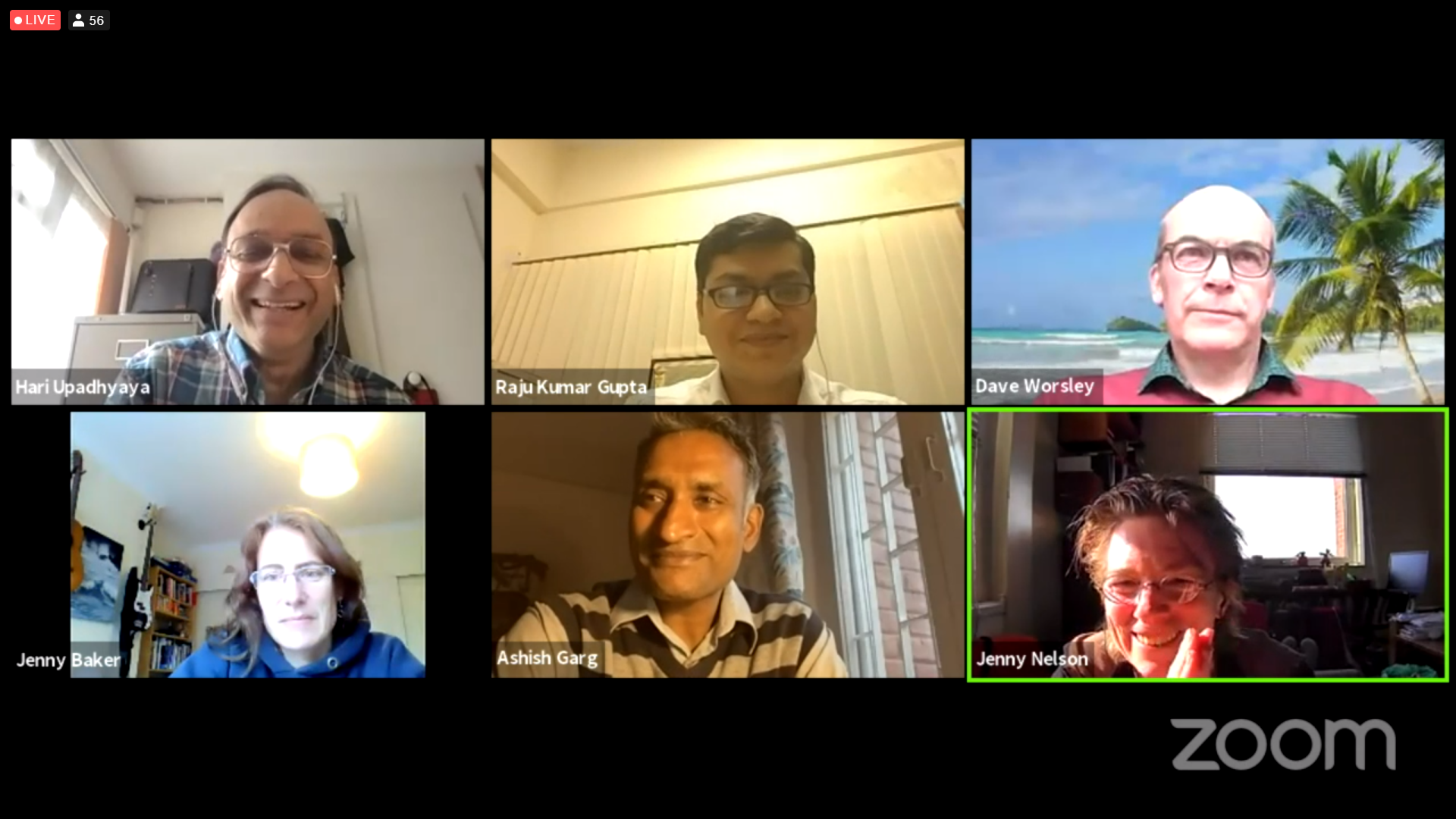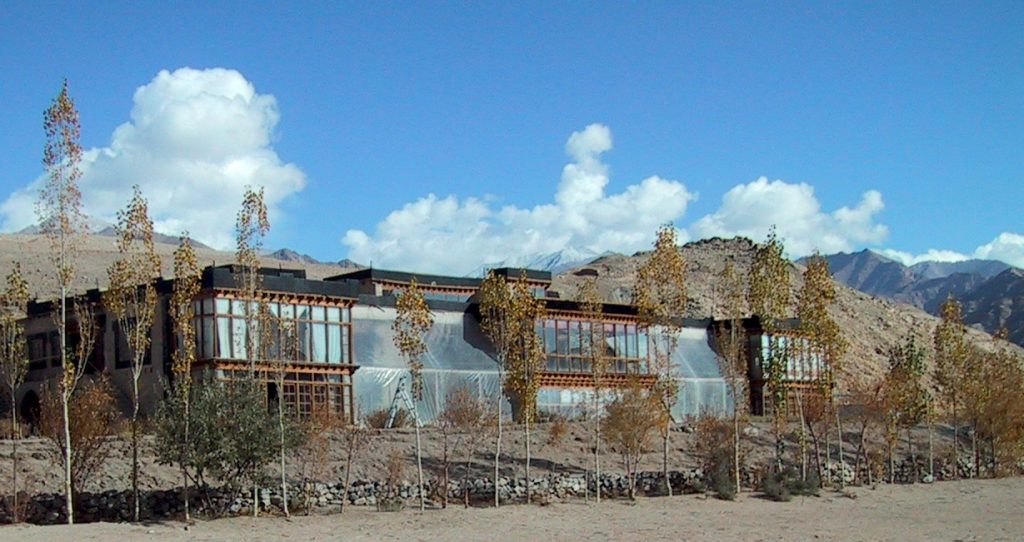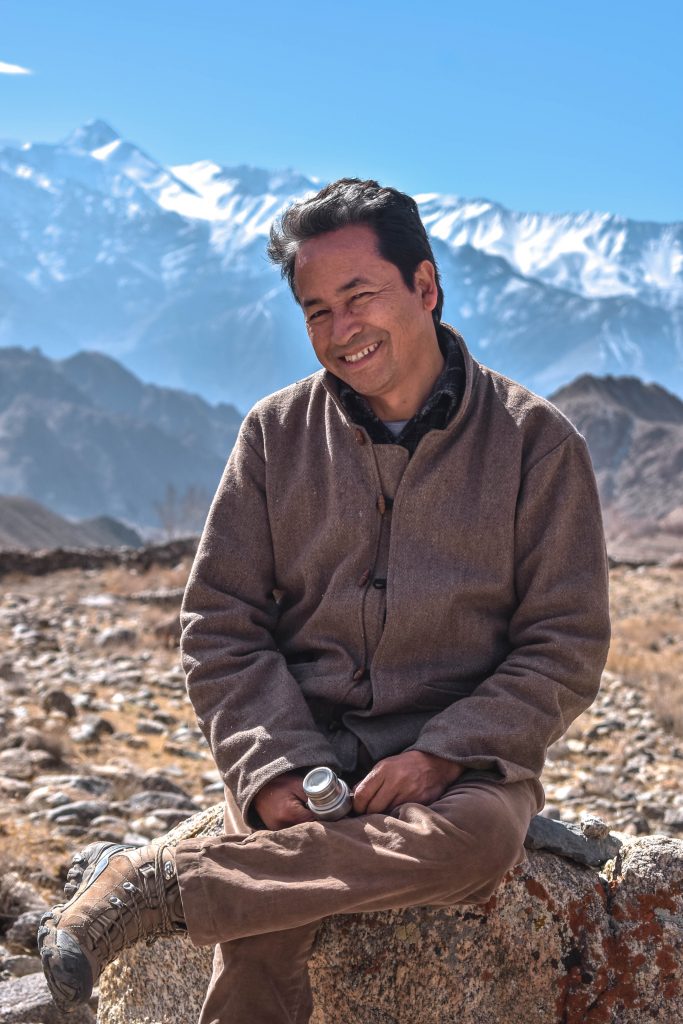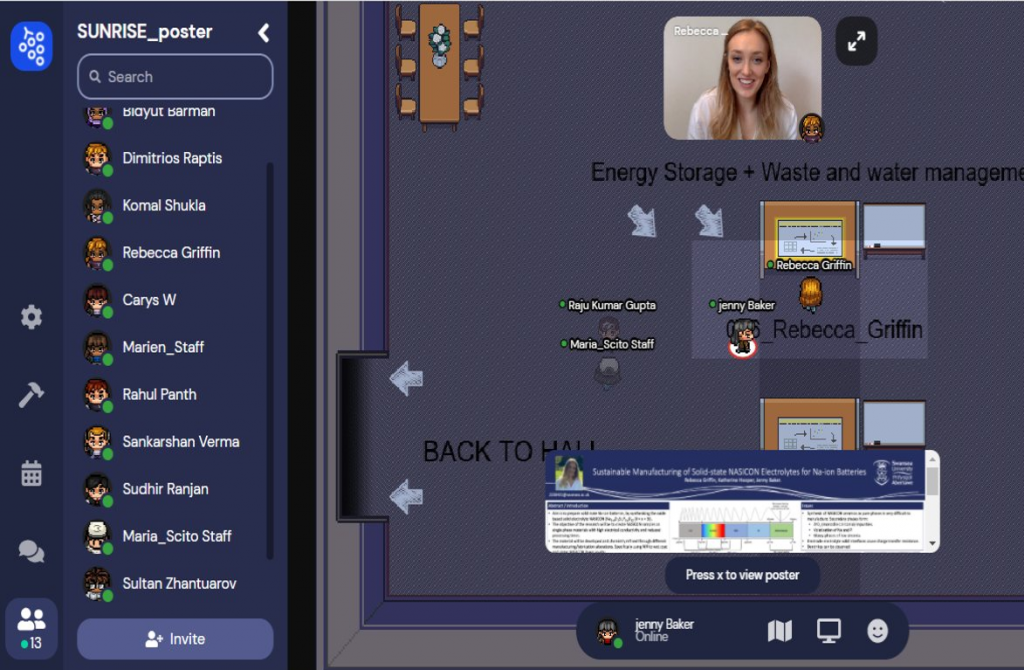Last week, we held our seventh biannual symposium for our global SUNRISE partners on the theme of ‘Energy Sustainability and Water’. This year, it was IIT Kanpur’s turn to host and would have been held on their campus, but due to Covid-19 regulations we were on zoom once more. With the support of NanoGe, and 26 invited speakers and 115 registered participants from across the UK and Global South, we managed to hold a truly international conference without a single flight.
We also held our very first community involvement workshop and on the final day hosted a series of tutorials for early career researchers. Read on to find out more about our four day event.
Day 1
Our opening session set the scene for the future of sustainable energy, and how crucial it is to rebuild a fairer and greener world post-covid. We had talks from Ellie Gilvin (Head of International Development UKRI), Prof Sandeep Verma (Secretary of SERB India), and Dr Arun Kumar Tripathi (Director General of the National Institute of Solar Energy, India.)
Next, we had a special invited talk from Mr Sonam Wangchuk, a well-known Indian education reformist and engineer in the field of sustainable energy (read more about him on our blog here). He phoned in from the mountains of Ladakh in northern India to talk to us about simple, affordable ways of using solar thermal energy to heat buildings, by using earth and straw for the walls and clear plastic or glass on the buidling’s south face. An example of this type of compacted earth building is the SECMOL campus, which Wangchuk helped design.
Expanding on our usual topic of PV, we had a series of talks focused on waste and water management, followed by a session on our planned demonstrator buildings and the community involvement work being carried out.
To end the day, we had a virtual poster session. In an effort to create a more interactive environment, we trialled a virtual platform called ‘Gather.town‘ in which users were able to navigate around a virtual space using an avatar. When you approach another person’s avatar, both of your video feeds will appear enabling you to have a live conversation. We had 35 posters submitted covering the themes of energy storage, photovoltaics, energy integration, and waste and water management. Feedback to the virtual space has been extremely positive!
Day 2
The second day of talks covered the topics of energy storage, photovoltaics, and energy integration.
We also announced the winners for our poster and oral presentation competetition, with prizes sponsored by RSC Journals. Congratulations once again to the winners and runners up! First place for the PhD talks was Swati Parma (IISER Pune) with Philippe Holzhey (Oxford) in runner up. First place for the posters was Weidong Xu (Imperial College London) followed by Tamara McFarlane (Swansea University) in second and Prateek (IIT Kanpur) in third place.
Day 3
On the third day we held our first ‘community involvement’ workshop based around the topic of our demonstrator buildings and how we can build a positive relatioship with the local users. We encouraged people from all disciplines to participate and contribute. Participants were split into three groups and each given a question to discuss. These were:
- What are the barriers/facilitators to working with the community’s priorities and SUNRISE possibilities?
- How may this building help/who may it harm?
- How do we see the longer-term maintenance and potential?
There was lots of interesting feedback and questions arising from these discussions. Overall, the workshop encouraged people from across the project who might have had no previous experience in social science to think about the non-technical aspects of our work and how we can prioritise the people who will actually be using the technology we develop.
Day 4
On the fourth and final day, we held a series of tutorial lectures aimed at early career researchers, with presentations from the esteemed Professors Henry Snaith, James Durrant, Sir Richard Friend, K.S. Narayan, & Vikram Dalal. These tutorials proved popular, with over 100 participants joining the zoom call.
Crucially, educational content like these lectures is part of our commitment as a project to grow the capacity of our partnered individuals and institutions, and the upskilling of early career researchers is one of the key ways of achieveing this.
While hosting international conferences online presents several challenges, such as with time differences and technical difficulties, there are benefits to be had too. Reduced carbon emissions and better accessibility for those not able to travel long distances are positive factors not be dismissed. As technology improves enabling greater interactivity (e.g. through virtual spaces such as ‘Gather.town’), virtual and ‘blended’ conferences will become more and more viable as alternatives. Thanks to hosts Prof Ashish Garg and Dr Raju Gupta at IIT Kanpur, we held a successful four-day online event with a variety of talks and activities, enabling our global network to collaborate with others from across discipilines and countries.




